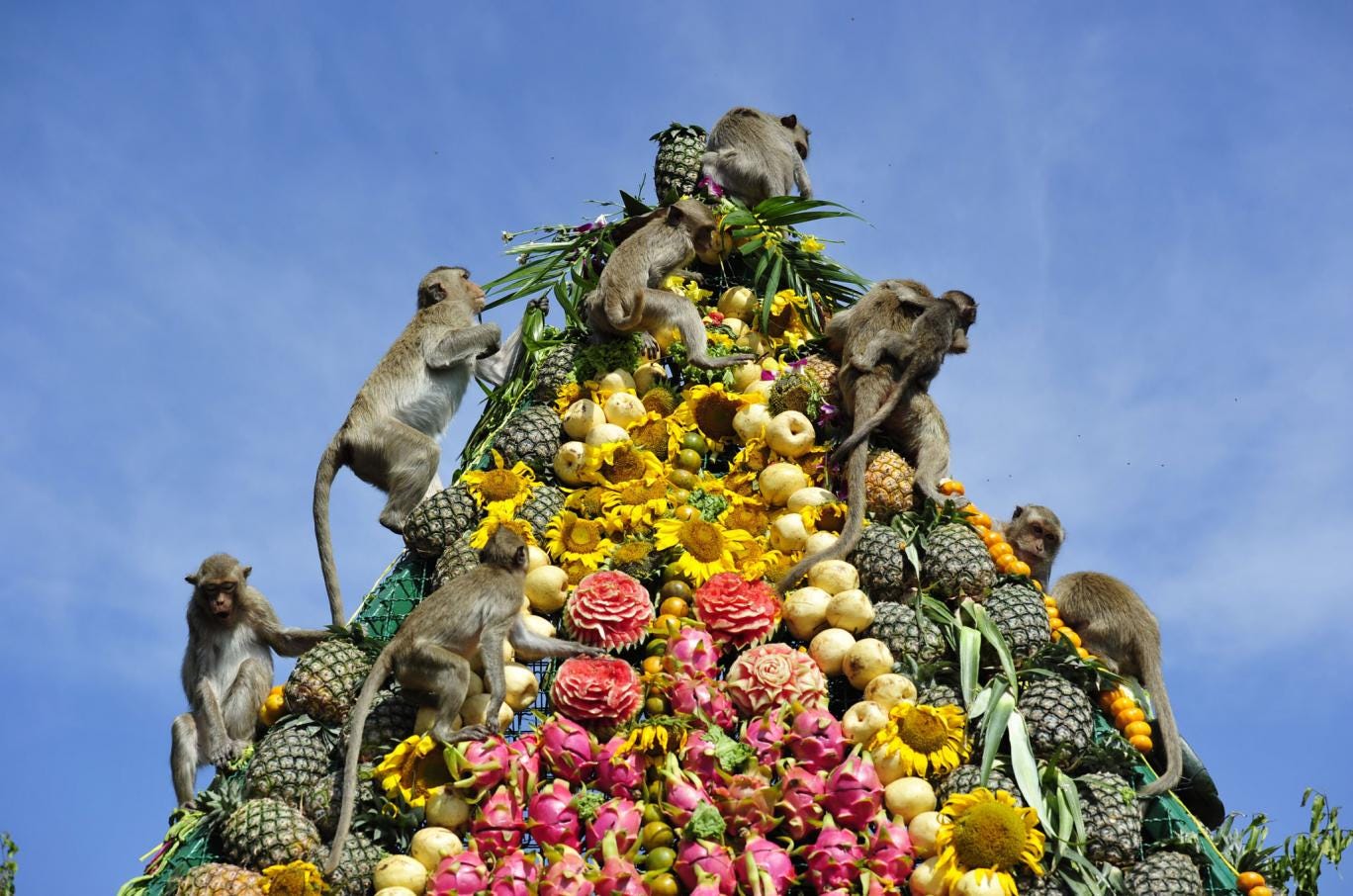
The former Hindu-shrine- turned-Buddhist-sanctuary-turned-Khmer-ruins is Lopburi’s best-known landmark, and each year hosts a grand banquet on the last Sunday of November.
Long red tablecloths are laid out; invitations are issued or, at least, attached to cashew nuts; and chefs prepare a feast that includes sticky rice, fruit salads and an egg-yolk dessert known as thong-yod (or golden tear-drops).
The diners are then invited to tear into the grub and tear they do, in between squirting drinks at each other and dancing on the table because these guests are those self-same macaques, which locals believe will bring good luck if they treat them with kindness.
The province of Lopburi, 150km north-east of Bangkok, is famous for the hundreds of crab-eating macaques that overrun its Old Town including the 13th-century temple of Phra Prang Sam Yot.
The former Hindu-shrine- turned-Buddhist-sanctuary-turned-Khmer-ruins is Lopburi’s best-known landmark, and each year hosts a grand banquet on the last Sunday of November.
And they do bring luck of a sort: the little scamps are generally recognised to be the region’s biggest draw for tourists even if they are also known for stealing from their backpacks and defecating on them from their overhead perches.
The vegetarian blowout might sound a strange gift to creatures whose very moniker suggests they would be into something more crustacean, but crab-eating macaques typically do not eat crabs at all.
Fruit and seeds make up anything from 60 to 90 per cent of their diet, and while they do prey on bird chicks, lizards, frogs and fish, they also moderate this fleshy intake with leaves, flowers and bark.
See full story on independent.co.uk